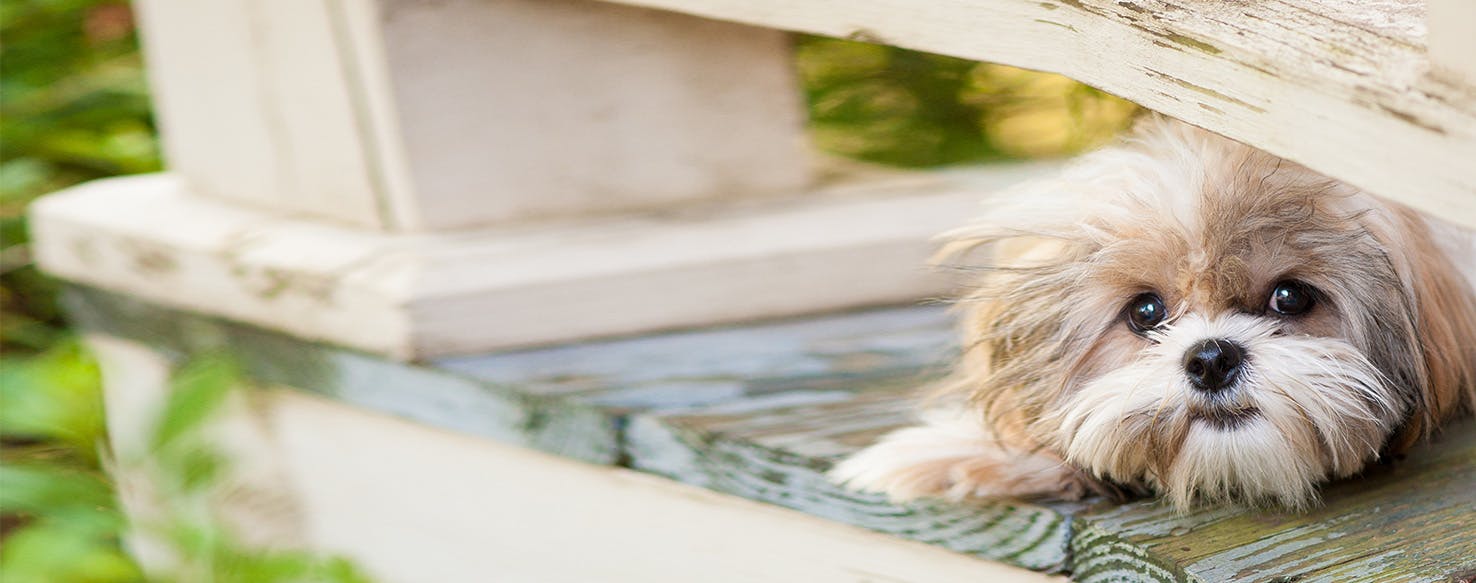- Home
- The Daily Wag!
- Behavior
- Why Do Dogs Wait for You to Come Home

Common
Normal
One of the best thing about man’s best friend is their boundless love and devotion. Having your dog greet you home at the end of the day can make even the worst day seem better. Some dogs seem as though their entire day is spent waiting for you to come back home. And they are overjoyed to find their owner come through the front door. Some dogs may not even eat any food or do much of anything else until they see the whites of your eyes. Why do dogs wait for you all day? Are they sad or anxious while you’re gone? What can you do to help your dog cope with your absence?
Though descended from wolves, dogs are unlike their wild cousins in one significant way: dogs enjoy human contact. Domesticated dogs actively seek human contact and are happier with human social interaction. But today’s wolves do share one similarity: familiar wolves greet each other by licking faces. A neuroscientist named Gregory Berns studied dogs’ brains to determine how dogs perceive humans—as a fellow packmate or something else. He discovered that dogs’ brains clearly differentiate dogs from humans. Familiar human scents, like that of their owner’s, elicited a “reward response” in the dogs’ brains. This data indicates that dogs love their humans, not only for supplying food but also for the social interaction.
In a recent study conducted by Swedish researchers Rehn and Keeling, dogs were video recorded during their owners’ absences. The duration of absence had a direct impact on the dogs’ reactions. In every case, the dogs mostly continued to just lay around while their owners were away. However, after an absence of two to four hours, the canines displayed more excited responses at their owners’ return, which included lip-licking, tail wagging, and body-shaking. The study suggests that dogs do feel the time they spend away from their humans. It’s unclear whether the dogs experienced stress during their owners’ absence, but they do feel powerful joy when their people come home.
The level of enthusiasm in a dog’s greeting varies, however, depending on several factors, such as the dog’s particular energy and personality, their relationship with their owner, and the dog’s self-control. A dog doesn’t understand being away from their owner, and will generally express great joy at their return. Isolation during the day can also make some dogs anxious, to the point that they won’t eat their food or treats left out until their owner returns. A dog might also just be nervous to be alone. When you return, they feel relieved and comfortable enough to eat. Alternately, you may have just established a pattern without knowing it; if you feed your dog and stand nearby, your dog associates eating with social interaction or proximity. They may believe that eating should always be done in your presence because that’s what they’ve always done.
Need advice about your pet's health?
Get answers fast from a veterinary professional 24/7 in the Wag! App.
Get Vet ChatSome dogs are fine if left alone. Others grow bored and spend their day sleeping or lying down. There is nothing inherently wrong with this behavior as long as you give them adequate attention and exercise while you are home. A dog left alone too much may resort to destructive behaviors out of boredom. Also, consider that if you don’t have a doggy door or you keep your dog crated, it is not fair to keep them isolated without an option for going potty. If possible, try to let your dog out or take them on a short walk during lunchtime. You will get more time with your dog and they will be happier with an empty bladder.
Your dog wants to lick or sniff your face when you get home, partly for affection, but also partly to determine what you have been up to and where you have been all day. Some dogs require more affectionate and excited greetings than other dogs. It will depend on your dog’s energy level and temperament. Giving your dog a proper greeting when they are excited to see you fosters their relationship with you. The level of greeting you bestow on your dog depends on them. They may need just a quick scratch or a minute-long hug-and-slurp session.
If they are too exuberant, you can redirect their energy into toys instead, so they don’t unwittingly knock you or your family over.
If you think your dog may be anxious while you are away or refuses to eat, it is important to try to determine what is causing their discomfort. If they’re not eating while you’re away, it might just be simple discomfort with being alone. There is a difference between boredom and real anxiety. Separation anxiety is often misdiagnosed by concerned pet owners, but some dogs really do have powerful anxiety when their owners leave. Separation anxiety is not always just barking or whining, it can also manifest as destructive behaviors, including chewing on treats or on other things, so consulting a vet is important to diagnosing separation anxiety and getting your dog the right kind of training or preventative steps.
If your dog saves all their energy for when you arrive through the door, consider it a compliment. Your dog considers you their most loved pack member. If they want to greet you with enthusiastic slurps when you come home, that is just fine. You can redirect overly exuberant greetings by grabbing a toy, or you can just bask in your dog’s affectionate slurps.
Written by a Border Collie lover Charlotte Perez
Veterinary reviewed by:
Published: 02/27/2018, edited: 01/30/2020
More articles by Charlotte Perez

